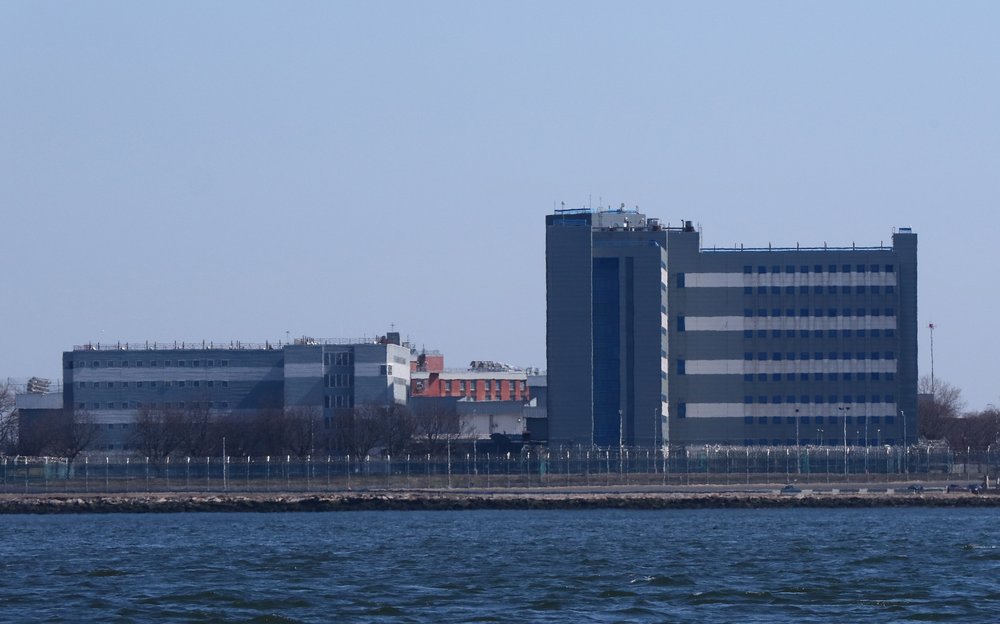New Yorkers will no longer be held in solitary confinement in city jails, Council votes
Dec. 20, 2023, 5:20 p.m.
Mayor Eric Adams opposed the bill and urged the City Council to vote against it.

Jail staff will no longer be allowed to lock up Rikers detainees alone for long stretches of time, after the City Council voted on Wednesday to ban the use of solitary confinement in New York City jails.
The fiercely debated bill, which was sponsored by Public Advocate Jumaane Williams, requires all people in city custody to have at least 14 hours of out-of-cell time daily in shared spaces going forward.
“No one leaves solitary confinement whole,” Williams said, addressing the Council Criminal Justice Committee ahead of Wednesday's vote. “It is cruel, it is inhumane, it can ruin people's lives and too many don't survive.”
The vote follows a long-simmering debate over banning solitary confinement in New York City that has stalled the legislation for years.
Mayor Eric Adams said he opposed the bill and urged councilmembers to vote against it. But the Council passed the measure with 39 out of 51 votes — enough to override if Adams did veto.
In a statement late Wednesday night, the mayor said his administration was "reviewing all options" around the bill and legislation requiring the NYPD to report low-level stops that the Council also passed.
“The New York City Council has taken action today that, if implemented, will unquestionably make our city less safe," Adams said. "Under [the solitary confinement] bill, the Department of Correction will no longer be able to protect people in custody, or the predominantly Black and Brown union workers charged with their safety, from violent individuals. Furthermore, this bill raises serious potential conflicts with directions that the Department of Correction has received from the federal monitor."
Correction officers have fiercely opposed the law, saying they need to be able to isolate dangerous detainees to keep jails safe amid slashings and sexual assaults against officers.
In response to the bill's passage on Wednesday, Benny Boscio, president of the Correction Officers' Benevolent Association, said the union was exploring all legal options.
“We will hold any councilmember who supported this reckless legislation responsible for the inevitable surge in attacks on our officers in the wake of today’s vote,” he said. “Shame on them!”
Advocates have long argued for the rights of incarcerated people who were indefinitely locked alone in cells or caged showers, resulting in extreme psychological trauma or even death.
“By effectively banning the torture of solitary confinement in all its forms in our city jails, the City Council has taken action that will save New Yorkers’ lives,” said Donna Lieberman, executive director of the New York Civil Liberties Union, as she urged the mayor to sign the bill into law “immediately.”
Tamara Carter’s son Brandon Rodriguez died in 2021 after being put in segregation on Rikers Island in a shower cage. "Amen Brandon, we did it,” she said in reaction to Wednesday’s vote. “Mommy made sure no one will ever suffer like you did."
The Adams administration and the city jails department both maintain that New York City ended the practice of solitary confinement in city jails several years ago. But the department still uses terms like punitive segregation, restrictive housing and protective custody. These practices meet the definitions of solitary confinement, just by different names, according to Williams and other elected officials, academics, lawyers, incarcerated people and their families.
The United Nations defines solitary confinement as "the confinement of prisoners for 22 hours or more a day without meaningful human contact.” It says solitary confinement of more than 15 consecutive days is a form of torture.
This week, Gothamist reported that a group of about 10 men held at Rikers Island on civil charges like failing to pay child support were locked alone in isolated cells for 23 hours a day for nearly a month in November.
In 2022, Gothamist reported other examples of New Yorkers who were held for long stretches of time alone on Rikers, including in caged showers known as “de-escalation units” and in solitary cages in the North Infirmary Command known as “restrictive housing.”
Under the new law, jails staff can only separate detainees from the general jail population in cases where a person has engaged in a “violent incident” in custody. Even in these cases, the law would ban solitary confinement beyond a four-hour “de-escalation” period. Correction officers would be required to check on detainees every 15 minutes during that period and refer health concerns to medical staff.
The Department of Correction will be required to implement the new law and the Board of Correction is required to oversee the implementation. If the law is not followed, detainees could file lawsuits to see it enforced.
In April, former Rikers Island detainees reached a $53 million settlement with the city after they claimed in legal papers that they were illegally held in solitary confinement.
The bill passed with a vote of 39 in favor, seven against and one abstention. Its sponsors and supporters said there are enough votes to override the mayor if he vetoes it, along with the backing of Council Speaker Adrienne Adams.
“Today is a momentous day… it’s a big deal,” said Councilmember Shaun Abreu, who voted in favor of the bill, at a committee hearing on Wednesday morning. “This is all in the pursuit of justice and treating people with dignity and respect.”
This story has been updated with additional information.
New Yorkers accused of failing to pay child support were locked up at Rikers for 23 hours a day NYPD officers now have to report when they stop someone on the street to ask for ID